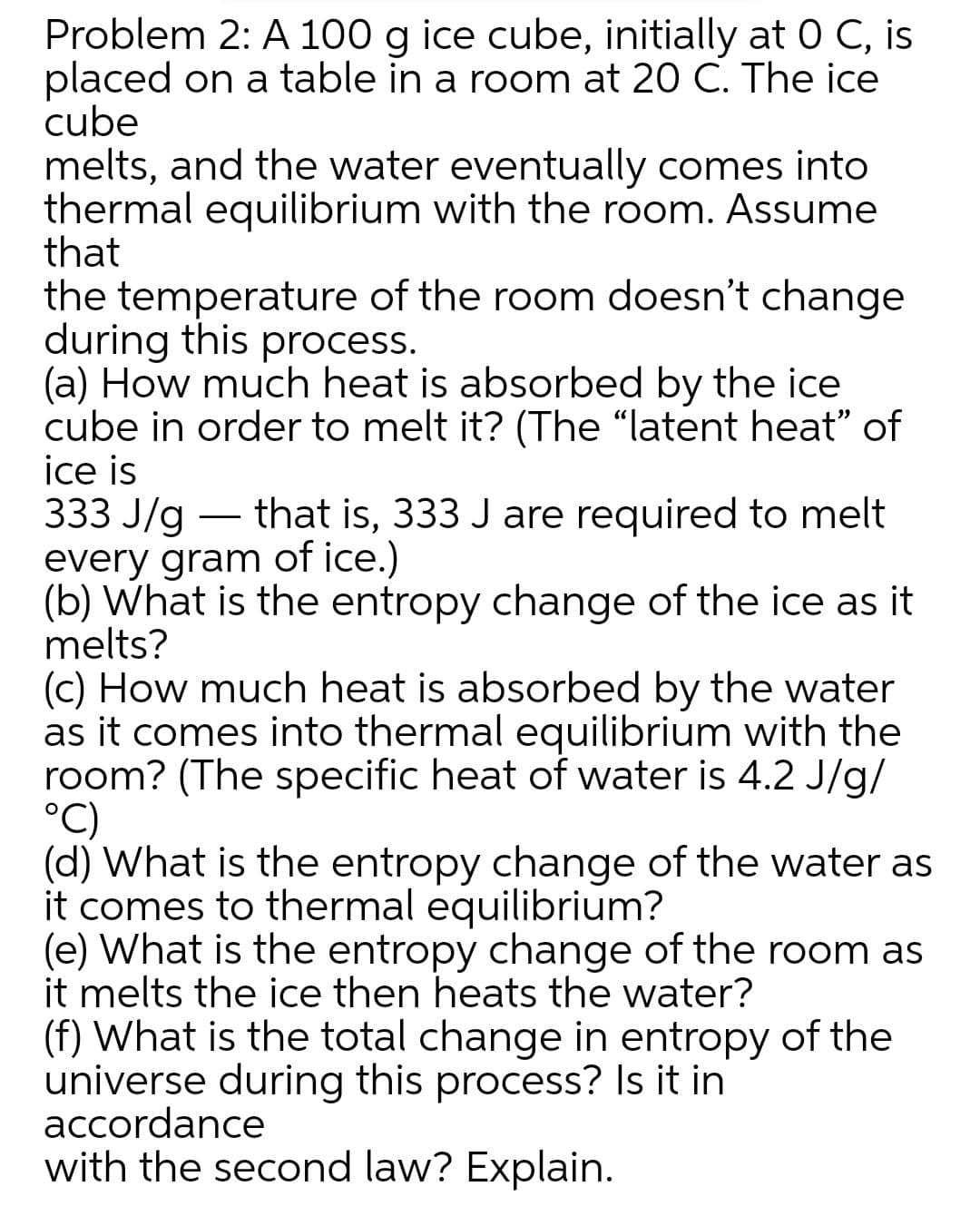Problem 2: A 100 g ice cube, initially at 0 C, is placed on a table in a room at 20 C. The ice cube melts, and the water eventually comes into thermal equilibrium with the room. Assume that the temperature of the room doesn't change during this process. (a) How much heat is absorbed by the ice cube in order to melt it? (The "latent heat" of ice is 333 J/g every gram of ice.) (b) What is the entropy change of the ice as it melts? (c) How much heat is absorbed by the water as it comes into thermal equilibrium with the room? (The specific heat of water is 4.2 J/g/ °C) - that is, 333 J are required to melt -
Problem 2: A 100 g ice cube, initially at 0 C, is placed on a table in a room at 20 C. The ice cube melts, and the water eventually comes into thermal equilibrium with the room. Assume that the temperature of the room doesn't change during this process. (a) How much heat is absorbed by the ice cube in order to melt it? (The "latent heat" of ice is 333 J/g every gram of ice.) (b) What is the entropy change of the ice as it melts? (c) How much heat is absorbed by the water as it comes into thermal equilibrium with the room? (The specific heat of water is 4.2 J/g/ °C) - that is, 333 J are required to melt -
Chapter1: Temperature And Heat
Section: Chapter Questions
Problem 80P: How many grams of coffee must evaporate from 350 g of coffee in a 100-g glass cup to cool the coffee...
Related questions
Question
Kindly solve all parts

Transcribed Image Text:Problem 2: A 100 g ice cube, initially at 0 C, is
placed on a table in a room at 20 C. The ice
cube
melts, and the water eventually comes into
thermal equilibrium with the room. Assume
that
the temperature of the room doesn't change
during this process.
(a) How much heat is absorbed by the ice
cube in order to melt it? (The "latent heat" of
ice is
333 J/g
every gram of ice.)
(b) What is the entropy change of the ice as it
melts?
(c) How much heat is absorbed by the water
as it comes into thermal equilibrium with the
room? (The specific heat of water is 4.2 J/g/
°C)
(d) What is the entropy change of the water as
it comes to thermal equilibrium?
(e) What is the entropy change of the room as
it melts the ice then heats the water?
(f) What is the total change in entropy of the
universe during this process? Is it in
accordance
with the second law? Explain.
that is, 333 J are required to melt
-
Expert Solution
This question has been solved!
Explore an expertly crafted, step-by-step solution for a thorough understanding of key concepts.
This is a popular solution!
Trending now
This is a popular solution!
Step by step
Solved in 2 steps

Knowledge Booster
Learn more about
Need a deep-dive on the concept behind this application? Look no further. Learn more about this topic, physics and related others by exploring similar questions and additional content below.Recommended textbooks for you

